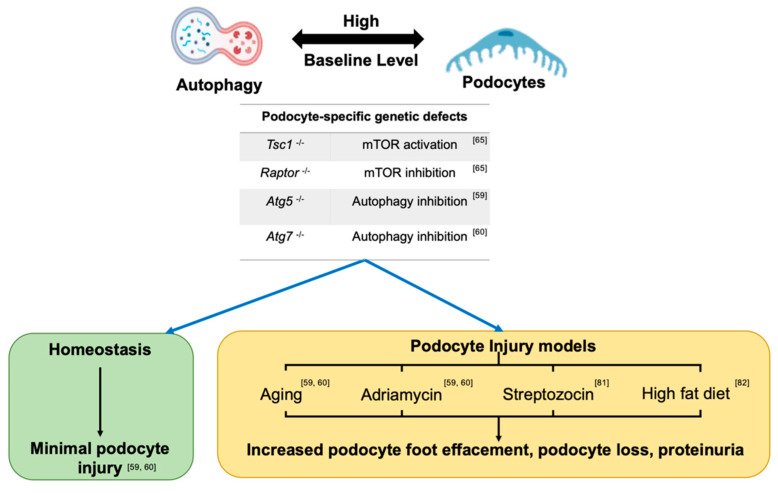Figure 2.
Role of dysregulated autophagy pathway in podocyte biology in homeostasis and injury models. Podocytes have high baseline levels of autophagy. The AMPK signaling pathway was reportedly predominant for autophagy regulation in a recent study evaluating the autophagy level in podocyte-specific knockout Tsc1 mice and podocyte-specific knockout Raptor with an AMPK activator. Autophagy inhibition during podocyte development shows no overt podocyte phenotype until early adulthood in homeostasis. However, the podocyte-specific knockout of Atg5 or Atg7, or disruptions of mTOR signaling in mice aggravated podocyte injury with podocyte foot effacement, podocytopenia, and proteinuria on exposure to aging or injury with adriamycin (ADR), high fat diet or streptozocin injury. These data indicate a protective role for autophagy in podocyte injury.

